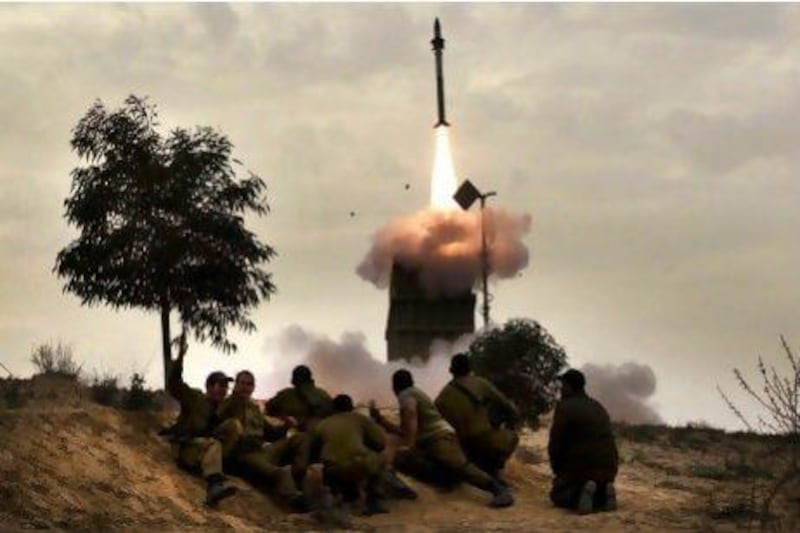WASHINGTON// In spite of a record budget deficit and American politicians otherwise desperate to prove their cost-cutting credentials during an upcoming election season, one area appears immune to any spending cuts: US aid to Israel.
Ehud Barak, the Israeli defence minister, arrived Monday in Washington to collect in person what amounts to the largest single US military aid grant ever awarded to any country.
After clearing what proved to be the final legislative formality last week, the US is set to provide Israel with nearly US$1 billion (Dh3.6bn) in military support for three anti-missile systems.
The aid was in the "national security interest" of the US, said Steve Rothman, a Democratic congressman from New Jersey and a member of the House appropriations subcommittee for defence, which approved the money on May 7.
"These rocket and missile defence systems allow Israel the ability to protect its civilians while giving its leaders the strategic space and time to take the appropriate action to root out terrorists and carefully plan their next steps," Mr Rothman said.
"This appropriation shows how vitally important these systems are for our nation's national security."
Mr Rothman's office did not respond to interview requests, but analysts suggested that the timing had more to do with the US election season and fears in Washington that Israel might unilaterally decide to attack Iran.
Israel has made increasingly belligerent sounds over Iran's nuclear programme during the past year and has intimated that without stronger international pressure, it reserved the right to take military action.
"This is yet another election-year gift for Israel," said MJ Rosenberg, a political analyst based in Washington. Between now and November's elections, the Israeli prime minister, Benjamin Netanyahu, "could ask for anything", he said.
"The administration is so desperate to prevent Netanyahu from going to war with Iran, and Netanyahu is playing that card for all it's worth."
Israel is the largest single recipient of US aid since the Second World War, according to a March report by the Congressional Research Service, the non-partisan research arm for Congress. The report calculated cumulative bilateral assistance to Israel at $115bn.
The latest military aid comes in addition to the $3bn that the US gives in annual aid to Israel.
In December, the Senate voted unanimously to pass an amendment that would impose stiffer sanctions on Iran's central bank after concerted political pressure from pro-Israel groups, including the powerful American-Israel Public Affairs Committee (Aipac).
Barack Obama, the US president, has addressed the annual Aipac convention in Washington two years running, in a possible effort to mitigate what many consider a strained relationship between his administration and the government of Mr Netanyahu.
The relationship was particularly strained when Mr Obama, at the outset of his presidency, vocally opposed Israeli settlement construction in all occupied territories, including East Jerusalem, and urged Israel to freeze such construction ahead of peace talks with the Palestinians. In the face of stiff Israeli opposition, the Obam administration has since dropped that demand.
While Mr Obama has been keen to point out that aid to Israel under his administration has reached unprecedented heights, his administration's policy towards Israel is still identified as a weak point and one that his presumptive Republican rival for the presidency in November, Mitt Romney, could attack.
According to The Hill, a daily congressional newspaper, fellow Republicans have urged Mr Romney to take a trip to Israel ahead of the November election to contrast himself with Mr Obama, who has yet to make a trip there as president.
During the Republican presidental primaries, Mr Romney repeatedly promised to consult with "my friend Bibi", a nickname for the Israeli prime minister, before taking any steps in the peace process with the Palestinians.
Jewish voters make up only a small fraction of the American electorate, but are a high-turnout voting community and constitute an important five per cent of voters in Florida and Nevada, two key states in November's election.





